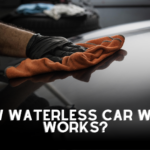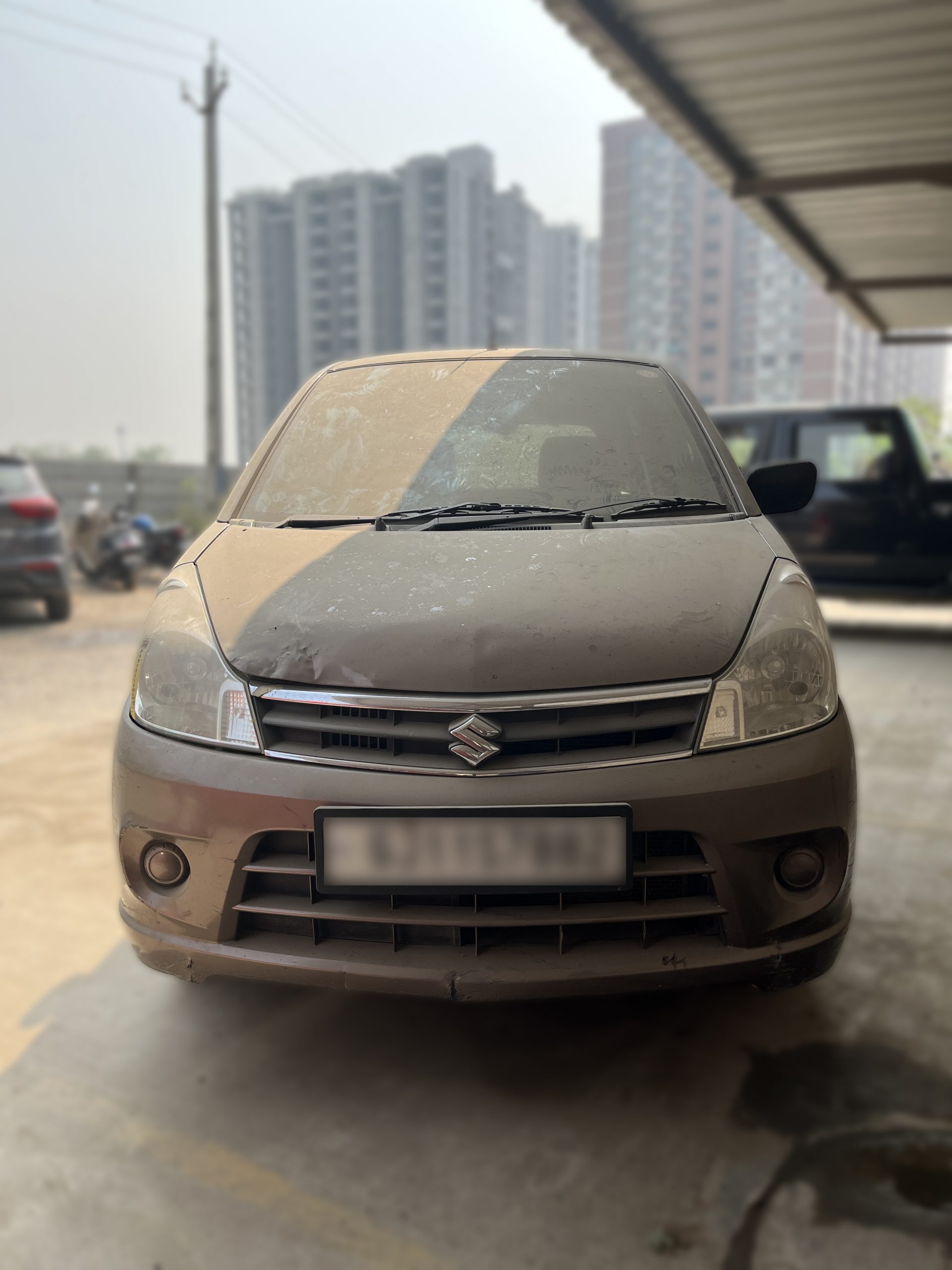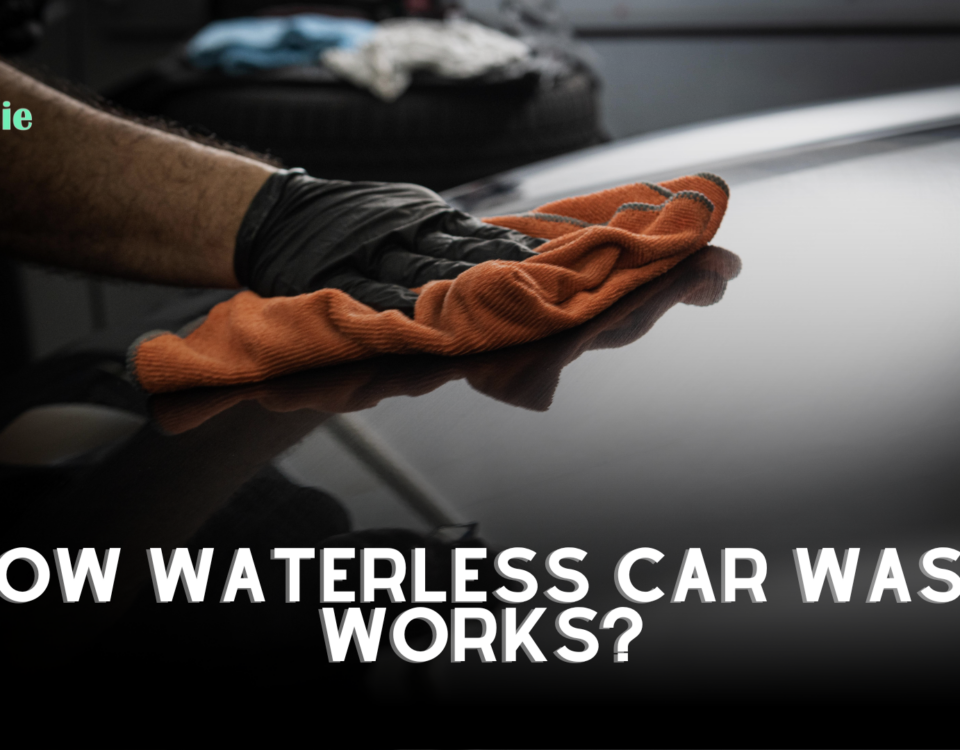
How Waterless Car Cleaning Works?
December 19, 2023Hello world!
April 22, 2024In our current age, where ecological conservation and sustainability are paramount, waterless car washes have emerged as a groundbreaking alternative to traditional car cleaning methods. This innovative approach raises a critical question: "Waterless car wash - is it safe for my vehicle?"
Understanding Waterless Car Wash is Safe or Not?
Waterless car washes utilize advanced high-lubricity sprays designed to clean and polish a vehicle's exterior. These specialized formulas work by encapsulating dirt and debris, enabling them to be effortlessly wiped away with a microfiber cloth. This process not only cleans the surface but also leaves a protective layer that enhances the car’s overall shine and appearance.

In-depth Safety Analysis
-
Paint Protection:
- Reduced Abrasion: Traditional washing methods often involve abrasive actions, such as scrubbing, which can damage a car’s paint. Waterless car washes minimize direct contact with the paint, thereby reducing the chances of abrasion.
- Advanced Formulations: These products often contain protective agents like carnauba wax, which offer additional layers of protection to the paint, further enhancing its longevity and appearance.
-
Corrosion Prevention:
- Minimizing Water Exposure: The traditional washing process can leave water in crevices and undercarriage areas, potentially leading to rust and corrosion. Waterless products, with minimal water use, largely eliminate this risk.
- Chemical Safety: The chemicals used in waterless car washes are typically designed to be gentle on automotive paints and coatings, thus preventing the chemical-induced deterioration often seen with harsh detergents.
-
Environmental Impact:
- Water Conservation: Traditional car wash methods can use up to 100 gallons of water per wash. Waterless car washes require significantly less, making them a more sustainable choice.
- Reduced Chemical Runoff: By eliminating the need for large quantities of water and soap, waterless car washes also reduce the amount of potentially harmful chemicals that run off into drains and eventually into natural water bodies.
-
Versatility and Convenience:
- Ease of Use: These products are incredibly user-friendly, often requiring just a spray and a wipe, making them accessible for everyone, regardless of their physical strength or washing skills.
- All-Weather Application: Unlike traditional methods that are often hindered by weather conditions, waterless car washes can be used in a variety of climates and environments, making them a versatile option for car owners.

Addressing Common Concerns in Detail
When considering waterless car washes, it's important to address some common concerns that potential users might have. These concerns primarily revolve around the potential for scratching the vehicle's surface and the effectiveness of these products on heavily soiled vehicles.
-
Scratching Concerns:
- Mechanism of Action: A major concern with waterless car washes is the fear of scratching the vehicle's paint when wiping off dirt. This concern arises from the assumption that without water, there isn't enough lubrication to safely remove dirt. However, waterless car wash products are specifically formulated with high-lubricity agents that lift and suspend dirt particles away from the surface. This technology ensures that when you wipe your vehicle, you're not grinding the dirt into the paint.
- Quality Microfiber Towels: The use of high-quality microfiber towels is essential in this process. These towels are designed to trap dirt particles within their fibers, further reducing the risk of scratching.
- Technique Matters: The technique used in wiping the car also plays a crucial role. It's recommended to use a gentle, gliding motion rather than vigorous scrubbing. This method ensures that any particles that may have been missed by the spray are not dragged across the paintwork.
- Regular Maintenance: Regularly using waterless car washes can also contribute to reducing the risk of scratches. A well-maintained car accumulates less dirt, making each cleaning session less abrasive.
-
Effectiveness on Heavy Dirt:
- Limitations and Realistic Expectations: While waterless car wash products are highly effective for regular maintenance and light to moderate dirt, they do have limitations. For vehicles covered in heavy dirt, mud, or road salt, a waterless car wash might not be the most effective initial method.
- Pre-Rinse Approach: In cases of heavy soiling, a pre-rinse with water can help to remove the bulk of the dirt before applying the waterless product. This step ensures that the high-lubricity agents can work more effectively on the remaining dirt and grime.
- Combination with Traditional Methods: For extremely dirty vehicles, combining waterless car wash methods with traditional water-based cleaning can be a good strategy. This approach allows for the heavy soiling to be dealt with effectively while still reaping the benefits of the waterless method for the finer cleaning and polishing.
- Adaptability: Understanding the capabilities and limitations of waterless car wash products is key. They are a fantastic tool for regular vehicle maintenance and can significantly reduce the need for traditional washes, but they are not a one-size-fits-all solution. Adapting the cleaning method to the condition of the vehicle will yield the best results.
Conclusion
Waterless car washes represent a safe, eco-friendly, and efficient alternative to traditional car washing methods. Their ability to conserve water, reduce environmental impact, and provide versatile and convenient cleaning options makes them an ideal choice for the environmentally conscious and savvy car owner. As this method continues to evolve, it could very well become the standard for vehicle care in a world striving for sustainability.


